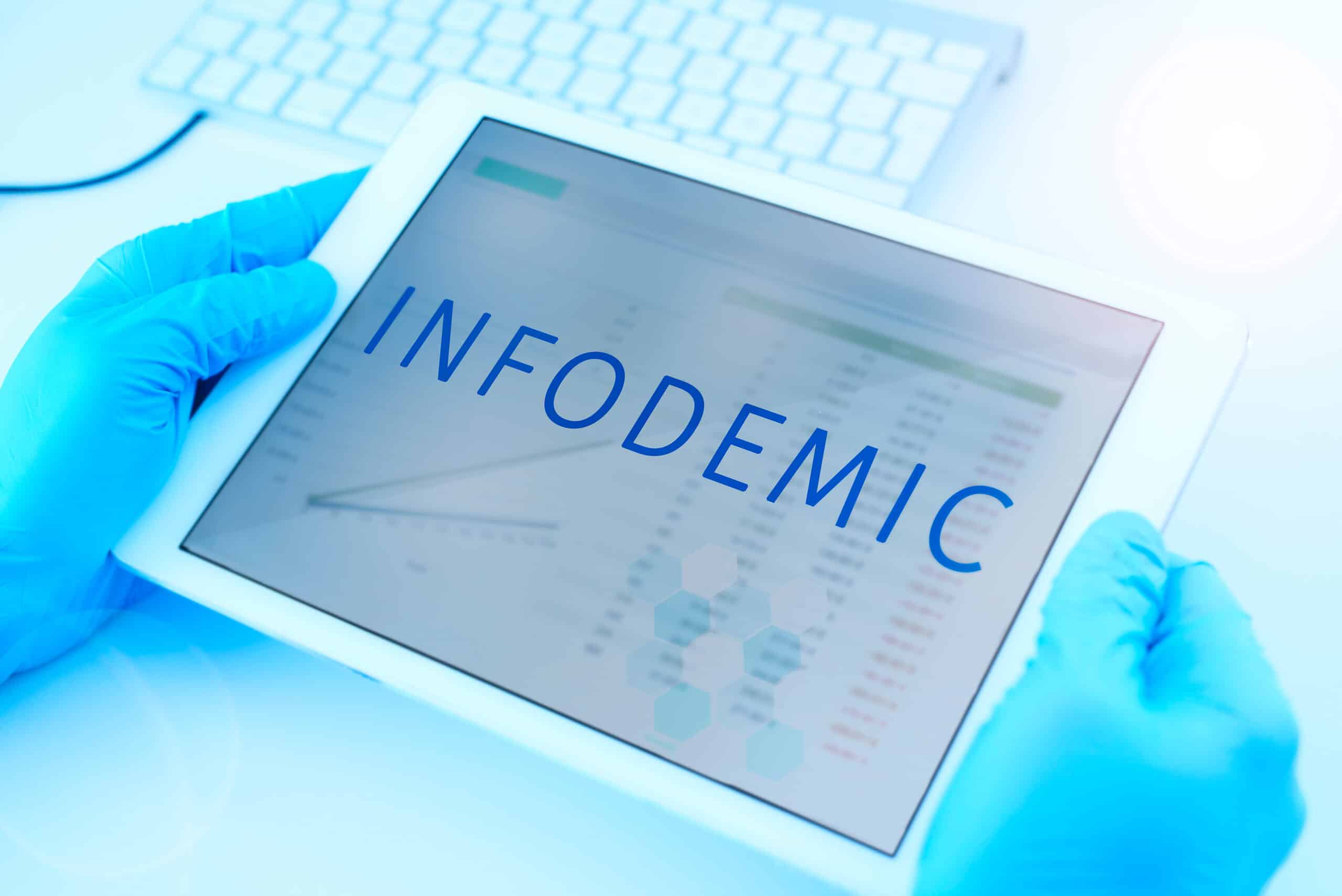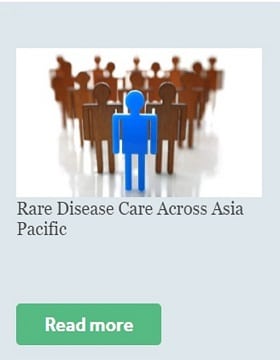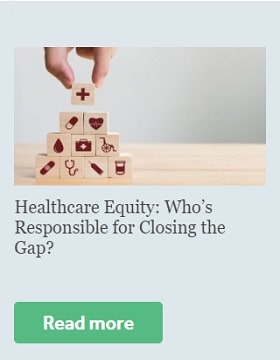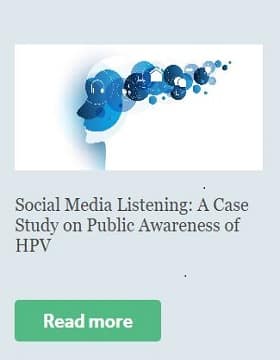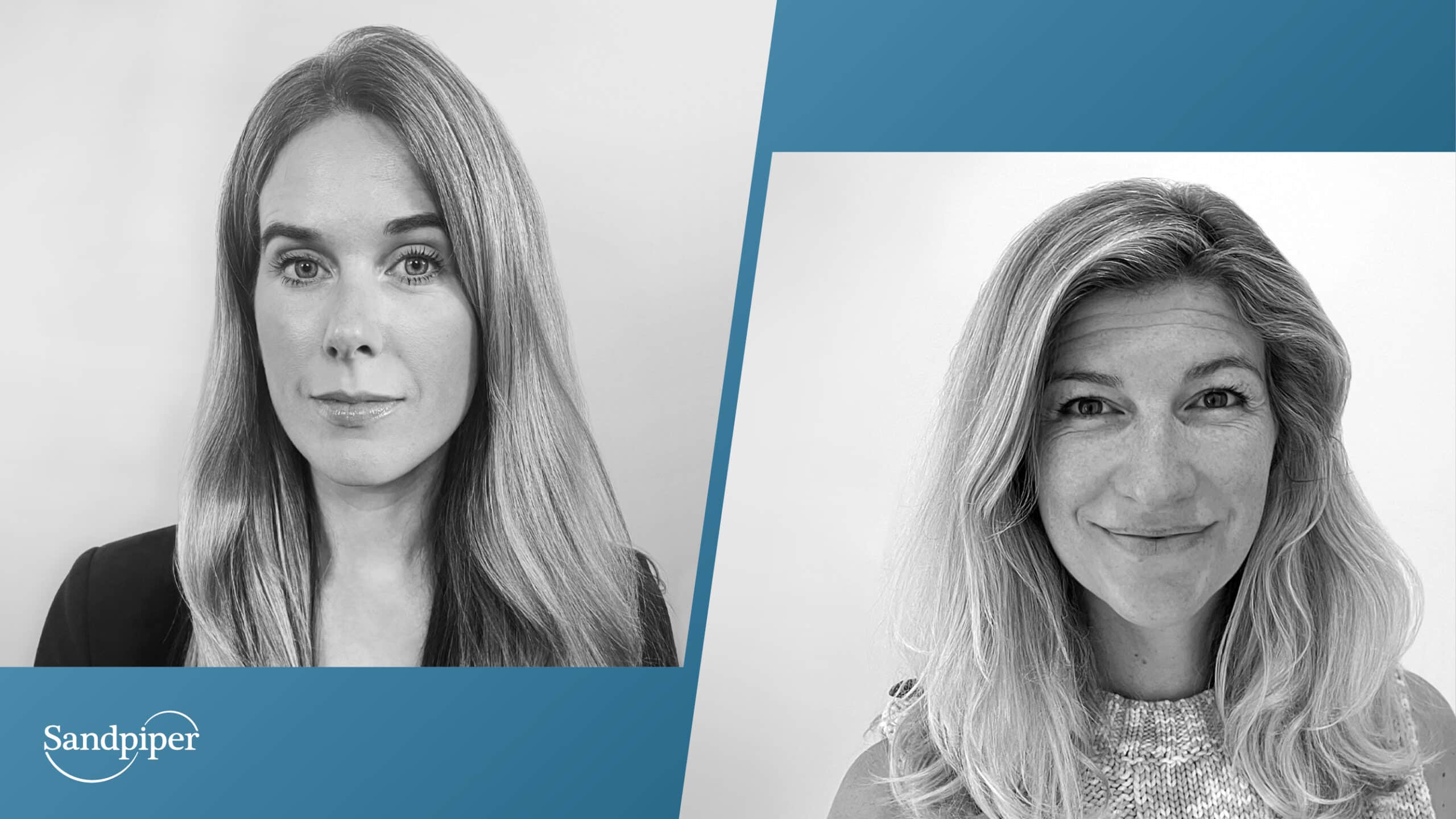
Sandpiper Appoints Camille Middleditch and Charlotte Whale to Growing New Zealand Team

Public Affairs Tracker: Insights into the Singapore Budget
Healthcare Communications in the ‘Infodemic’ Age
February 2023
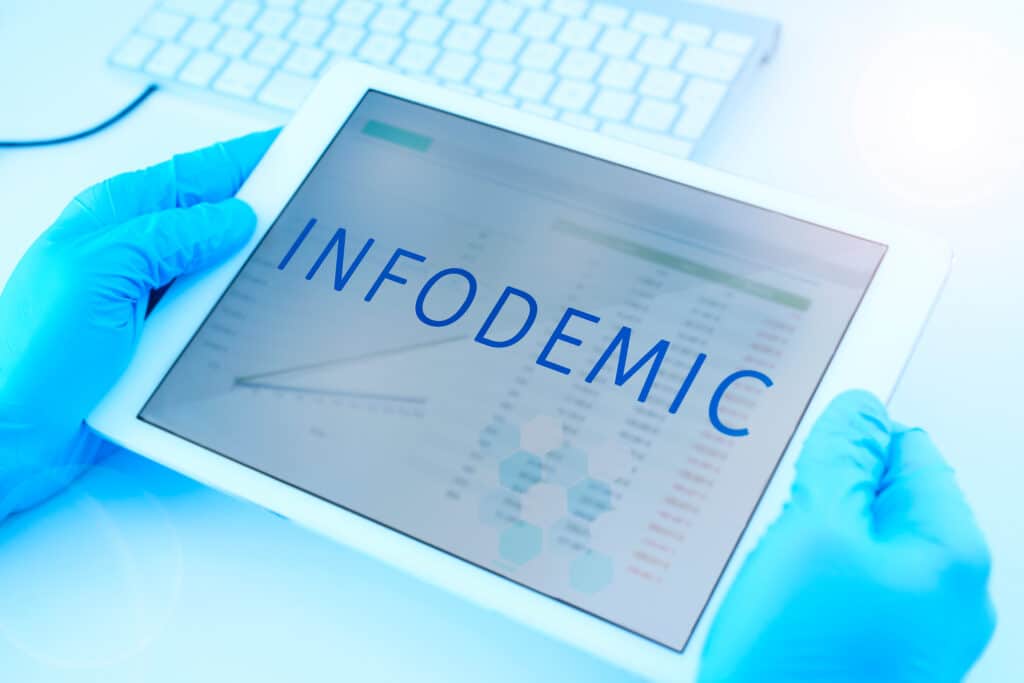
By Isaac Tan, an Account Director based in Singapore. Isaac specialises in healthcare and medical communications. Having worked with a number of international healthcare brands, Isaac has a deep passion for translating complex science into powerful and resonant messages.
In the first weeks of his turbulent Twitter takeover, Elon Musk sold blue ticks for just eight dollars. Until then, these checkmarks had been designed to show that ‘accounts of public interest’, such as those belonging to companies and celebrities, were authentic. But once these ticks could be bought with no verification, some were quick to take advantage.
On 10 November 2022, an account claiming to be US pharmaceutical giant Eli Lilly – and bearing the official blue checkmark – tweeted that it would now be making insulin free of charge. But though the account was fake, the impact of the tweet was real. Just 24 hours later, Eli Lilly’s share price had dropped four percent – wiping billions off its market value. Other insulin makers saw similar but less significant drops as the fallout rippled through the pharmaceutical sector.
This infamous incident is just the tip of the iceberg when it comes to fake health news. The WHO describes this avalanche of misinformation as an ‘infodemic’: “An overabundance of information – some accurate, some not – that makes it hard for people to find trustworthy sources and reliable guidance”. This infodemic sows confusion, encourages dangerous behaviour, and undermines trust in authorities. In other words, it threatens not just public health but also brand and reputational health, too.
What leads people to believe health misinformation?
Few people spread fake health news on purpose – their motives are more often misguided rather than malicious. For some, challenging mainstream healthcare knowledge can follow a bad personal experience. For instance, one aspiring nurse and former chemist turned against vaccines after hospital staff dismissed her questions about possible side effects on her child. This led her to seek answers online and, over time, to become drawn into anti-vax communities.
It can be difficult to challenge medical misinformation. Telling people to “just follow the science” might sound like good advice. But without expert guidance to separate fact from fiction, people can fall deeper down the rabbit hole.
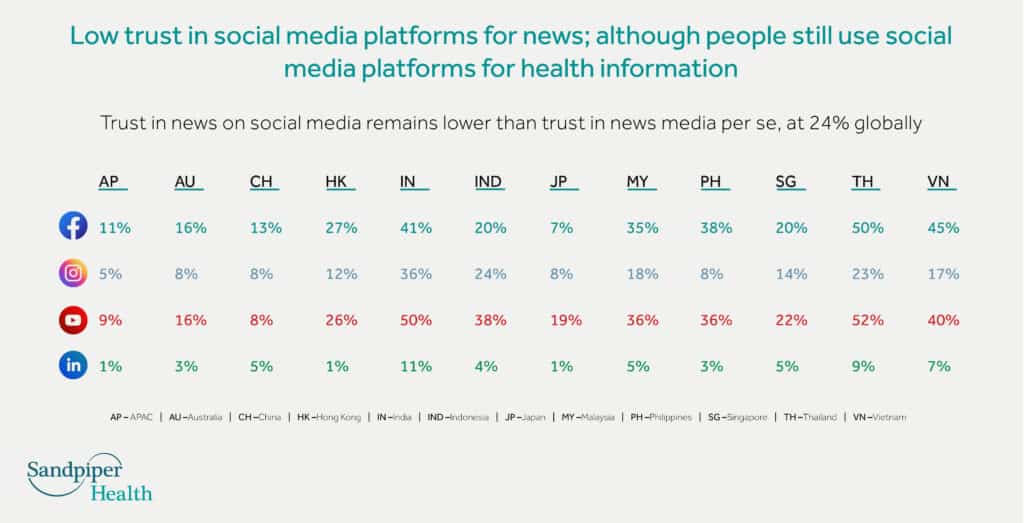
The COVID-19 pandemic has accelerated the infodemic. Social media, in particular, has become flooded with spurious medical claims. Meanwhile, people have become more anxious than ever as wave after wave of variants emerged. The question, then, is how can healthcare stakeholders turn the tide?
How can healthcare brands tackle the infodemic?
First, healthcare brands need to know their audience and understand the issues people are talking about. ‘Social listening’ can give brands an in-depth insight into the sentiment or awareness of their audience about a particular health concern (as we saw with HPV in China). This also allows brands to do effective ‘rapid rebuttal’ and nip misinformation in the bud before it goes viral.
Meanwhile, ‘Big Data’ can also help healthcare brands to unlock unique audience insights. Data mining can uncover which groups might be most at-risk of misinformation while also highlighting which channels – and even which terms – are most popular. For instance, people with eating disorders often use abbreviations such as “promia” and “proana” instead of “pro bulimia” and “pro anorexia”. This knowledge can help healthcare stakeholders better reach and communicate with people about eating disorders, while also pinpointing which platforms are pushing dangerous information.
How can healthcare brands tackle the infodemic?
- Understand your audience
- Earn the trust
- Empower healthcare professionals
Second, healthcare brands need to earn the trust of their audience. This requires that communications are delivered in accessible language. Jargon is fine when talking to specialists, but this alienates people searching for information. Nothing loses readers faster than long, confusing content which raises more questions than answers.
So, information should be condensed into clear, simple messages. The same goes for data, too. Translating facts and figures into bite-sized, digestible chunks helps readers better understand the information being shared. Likewise, creative communications using video or social media influencers can give campaigns a relatable, human face rather than depending on dry, dispassionate data.
But building trust is about tone as much as content. People often share medical misinformation out of a sincere desire to do good – to right a ‘wrong’ or help people feel better. Therefore, campaigns that come across as condescending or dismissive – however factual or evidence-based – can fuel the infodemic rather than address it. Meanwhile, as in all good communications, repetition is essential. Change comes over time, not overnight. So, brands must ensure their messages are consistent and their campaigns long-term, not just a knee-jerk reaction to a crisis. Targeted SEO strategies can help here, ensuring that audiences encounter these messages on a consistent basis.
Third, healthcare professionals need to be empowered to combat misinformation. Stories beat statistics when it comes to successful communications. Therefore, doctors, scientists, and nurses – rather than multinational organisations – can be powerful advocates when empowered to speak in their own authentic voice about their own professional experience. However, it is important that these healthcare professionals are media-trained and social-media-literate to ensure that their comments are accessible and jargon-free and reach as wide an audience as possible.
Treating the infodemic
As the old aphorism goes, “a lie can travel around the world and back again while the truth is lacing up its boots.” Thanks to social media, it is now easier than ever to create and share medical misinformation. Meanwhile, healthcare brands must follow stringent guidelines, ensuring that their claims are factual and evidence-based before responding.
However, this can be avoided if brands take a long-term and proactive approach. The infodemic can be ‘treated’ through consistent efforts to build trust among audiences, empower healthcare professionals and patients, and develop effective communication channels.

